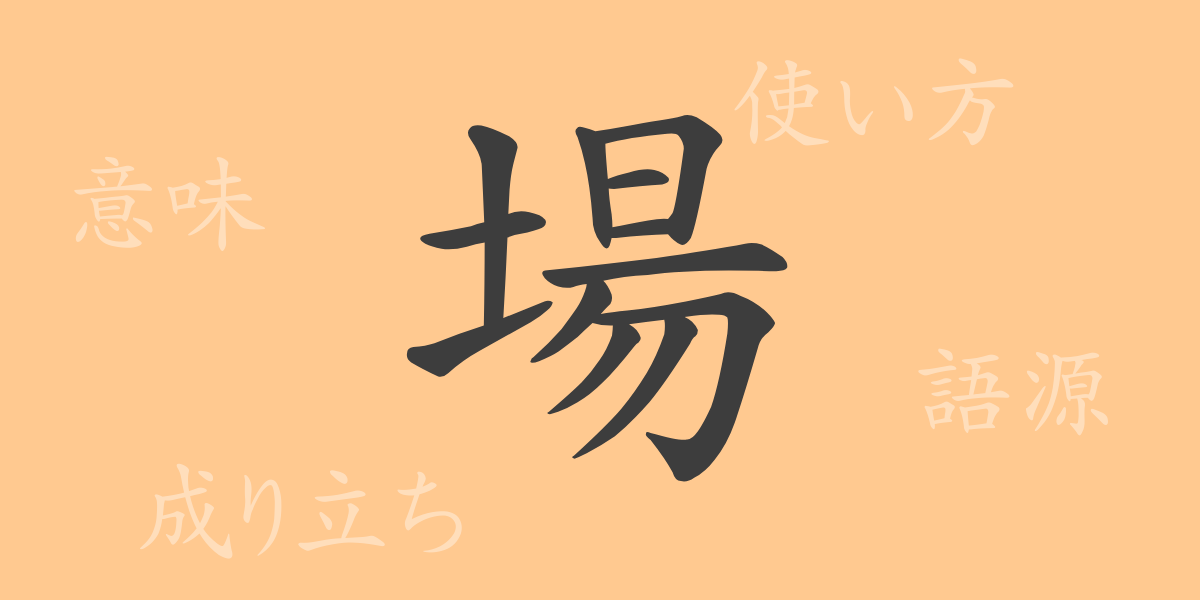The beauty of the Japanese language lies in its delicate expressiveness, where each character holds deep meaning, contributing to the richness of expression. One such commonly used kanji is “場” (じょう), which is essential in everyday conversation, literature, and the business world. This article explores the profound meanings and origins of “場,” as well as its applications, including idioms and proverbs associated with it.
Origins of 場 (じょう)
The kanji “場” has ancient roots traceable to Chinese oracle bone script. It originally meant “to flatten the land,” and over time it came to denote “place.” As the centuries passed, “場” evolved within various cultures and languages, developing into the character with multiple meanings that we use today.
Meaning and Usage of 場 (じょう)
Beyond simply meaning “place” or “spot,” the kanji “場” also conveys abstract concepts such as “opportunity,” “situation,” and “scope.” It is commonly used to describe specific sites where activities like sports or events take place. Thus, “場” is a versatile kanji that broadens the scope of expression in Japanese, adapting to various contexts.
Readings, Stroke Count, and Radical of 場 (じょう)
The kanji “場” offers valuable insights into its pronunciation and structure:
- Readings: The on’yomi (音読み) is “ジョウ,” and the kun’yomi (訓読み) is commonly “ば.”
- Stroke Count: “場” consists of 12 strokes.
- Radical: The radical is “土” (earth), aligning it with kanji that signify earth-related concepts.
Phrases and Proverbs Using 場 (じょう) and Their Meanings
There are numerous idioms, phrases, and proverbs incorporating “場” in Japanese, each reflecting the language’s beauty and diversity. For instance, “場当たり的” (ばあたりてき) means an improvised or temporary response, “場を読む” (ばをよむ) refers to the ability to assess situations, and “一場の夢” (いちじょうのゆめ) symbolizes the transience of life. These expressions showcase the versatility and richness of Japanese expressions.
Conclusion on 場 (じょう)
The kanji “場” plays a crucial role in communication within the Japanese language, deeply ingrained in our daily lives and facilitating connections through words. This article has aimed to deepen understanding of “場’s” various aspects, enhancing our appreciation of Japanese linguistic expressions.

























